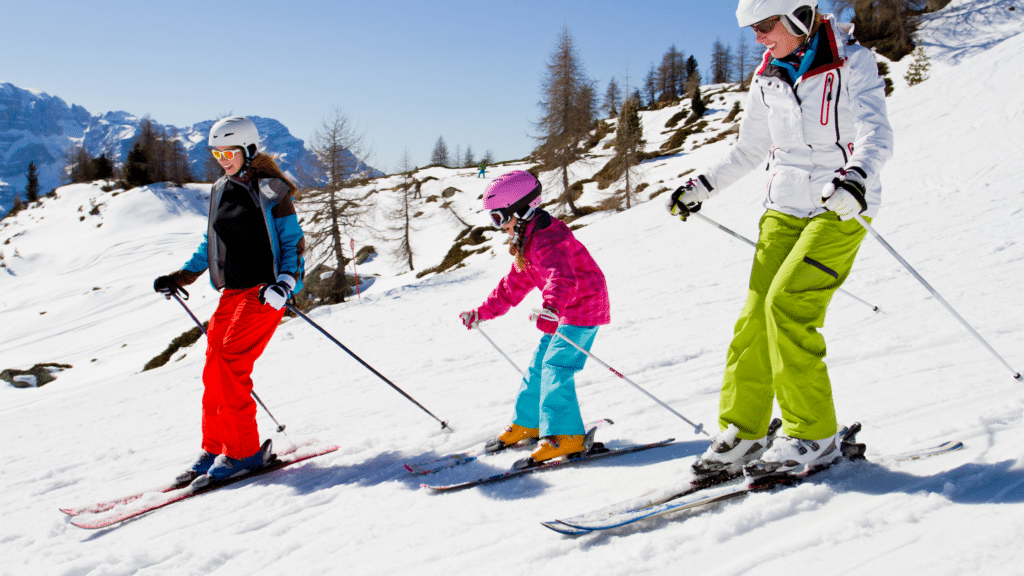Although winter is a cold season, it’s not all dull as it comes with many seasonal family fun and awesome snow activities, such as skiing and snowboarding. However, the joy can be cut short by winter injuries from these activities without warning. In fact, in the US, it is estimated that an average of 200,000 people seek medical care for winter-related sports injuries. This is due to the erratic weather and extreme cold that comes with snow, slush, and ice formation. And knowing how to prevent common winter injuries helps you stay safe and healthy on the slopes.
Skiing and snowboarding injuries range from mild to severe, but with some preparation and knowledge, you minimize the risk of injury and maximize your enjoyment on the slopes. This blog post will look at tips for avoiding injuries during winter.
What Winter Injuries Are Common?
Sprains and Strains
One of the most common winter injuries is sprains and strains. These injuries occur when muscles and ligaments are over-stretched or twisted, leading to pain and inflammation. Remember, skiing and snowboarding can put a lot of strain on your body and worsen these kinds of injuries.
Knee Injuries
Knee injuries are prevalent, especially for skiers, as it involves more turning and twisting at the knee. The most common knee injuries include posterior and anterior cruciate ligament (PCL/ACL) and meniscus injuries, which manifests with a popping sound. Sometimes surgery may be necessary for large tears.
Back, Shoulder, and Neck Injuries
Back and neck injuries are another common winter injury, often caused by falls that lead to compression of the spine or force on the discs in between vertebrae. These injuries can be so severe sometimes to render one unable to move for weeks or even months. These injuries include:
- Shoulder dislocation
- Concussions
- Rotator cuff tear
- Shoulder separation
- Broken collarbone
Other injuries include bruises and fractures in bones like wrists, hips, elbows, and knees. You may also experience general discomfort, such as chafing in underarms and thighs, because skiing/snowboarding requires a constant motion for extended periods.
How to Prevent Common Winter Injuries
- The best way to avoid injuries while sporting is by wearing protective gear. Helmets prevent head and neck injuries, while elbow and knee pads protect you from falls and collisions.
- Wearing warm and waterproof clothing prevents chafing from long days of activity. Ensure your boots fit well and have good ankle support, as ill-fitting boots can lead to sprains or fractures.
- Exercise before the main event to prevent damage to cold muscles and ligaments
- Take breaks when needed, as overexertion leads to exhaustion and increases your risk of injury
- Watch your steps not to fall due to slippery ice.
- Take notes of any forecast.
- Don’t do any winter sports alone so you can get help in case of an emergency
- Work with a professional
At-Home Treatments for Temporary Relief
Treatments are available for temporary relief if you find yourself with an injury requiring more than just a few minutes of rest. One of them is the cold treatment which involves applying ice packs to the injured area. It helps reduce swelling and numbs pain by constricting blood vessels near the injury site.
Heat therapy is another option. This remedy uses warm items such as heating pads and steamed towels. It involves compressing the injured part to relieve muscle spasms and stiffness due to inflammation or soreness.
Resting your injured joint should also help relieve temporary symptoms so it doesn’t worsen into something worse. It should be your first option before you explore the other two.
What to Do If You Suffer a Winter Injury
If you injure yourself during winter, stop what you’re doing immediately and get yourself checked out by a medical professional. At AOA Ortho, we have numerous treatment options for minor and severe winter injuries.
Fill out the form below to contact us and request an appointment. We offer flexible scheduling so that you don’t have to worry about being away from work or school because of your injury.

